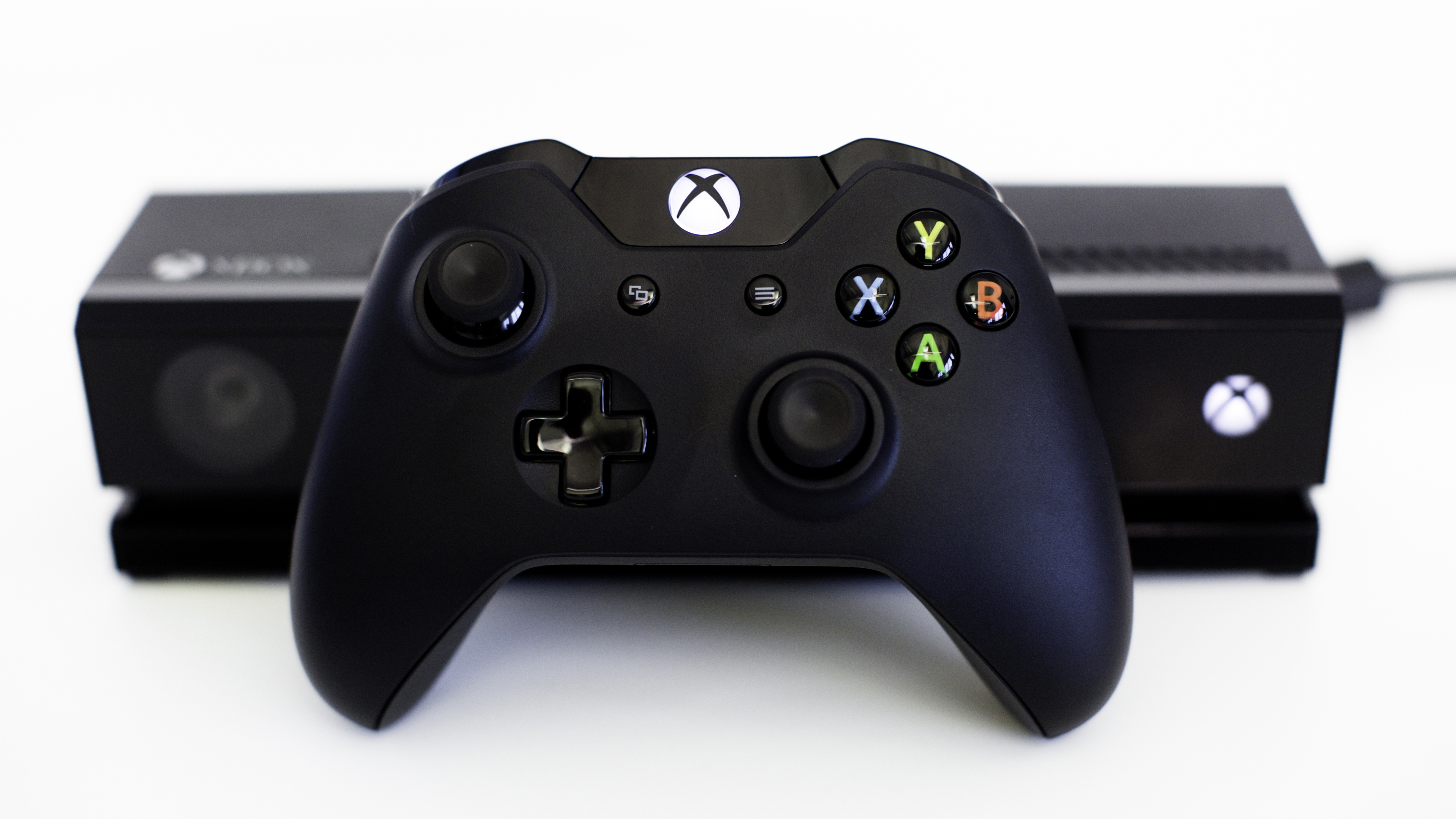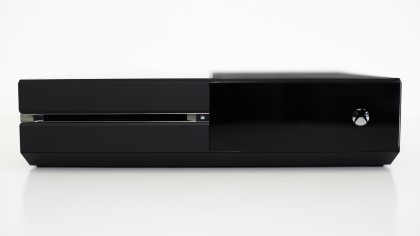Played right, Xbox One's upgrade plan could win it the console war
Big bang theory

We're only two years into the current console generation, and while the war is far from over the first battle clearly has its victor: Sony. Right now it's estimated that the PS4 is outselling the Xbox One by about a 2:1 margin. That's a significant difference.
Microsoft knows it's dragging behind in the popularity contest, which is perhaps what has led to a change in strategy. This week the company's Xbox head Phil Spencer has been talking about plans for "hardware innovations", separating out hardware and software platforms, and plans to further integrate the console into the "Unified Windows Platform".
"You'll actually see us come out with new hardware capability during a generation allowing the same games to run backward and forward compatible," Spencer said. "Because we have a Universal Windows Application running on top of the Universal Windows Platform that allows us to focus more and more on hardware innovation without invalidating the games that run on that platform."
It sounds like it's Microsoft's intention to treat a games console more like a different gadget: Your phone.
Phones and games consoles currently operate on radically different upgrade models. As all gamers know, consoles tend to last five or six years before being replaced by a new model. Throughout the entire lifetime of the console, the hardware remains the same.
Phones, meanwhile, have got into a place where new models are released every single year. This is possible because of the software and hardware platform separation that Phil Spencer mentioned. Sure, each upgrade brings new hardware, but every iPhone is ultimately based on the same operating system. This means that it is perfectly conceivable that an app developer could build their app or game to work on everything from 2007's original iPhone to last year's iPhone 6S.
Big bang
Taking this approach to games consoles would be an intriguing prospect. Imagine if instead of having to wait five or six years for a "big bang" moment where old is replaced with new, every year (or every two years, say) Microsoft unveiled a new Xbox One that was slightly better than the preceding version - capable of slightly better graphics, or processing slightly more data, or with support for a new hardware standard. All the while, the software on the inside would remain the same Xbox operating system, able run more or less the same code.
Sign up for breaking news, reviews, opinion, top tech deals, and more.

All developers would have to do would be to ensure that their games can be suitably backwards compatible. So if EA decided FIFA 18 should take advantage of the 2018 Xbox One's snazzier graphics chip, it would simply have to build in a feature to downgrade graphics if the game is run on a 2013 Xbox One (just like your phone does, and just like PCs have always done).
Eventually, the older hardware could almost naturally become redundant as fewer games support the older systems - but by then, hopefully everyone will have upgraded. Just like how there are relatively few original iPhones still in use today.
An upgrade regime like this would conceivably work well for everyone involved.
For Microsoft, it would mean that it doesn't have to take the gamble of starting from scratch again every six years. Switching to an incremental model would mean that Microsoft can retain and inherit an audience from previous generations - making it a more attractive platform for developers.
"And if you do pick up a new system, you already have a library of games that will work with it."
While games for a brand new PlayStation 5 might start from zero users, games for the 2019 iteration of the Xbox One will still have tens of millions of older users who can play too. Incremental upgrades can begin the slow march towards rebuilding the market share it lost at the start of this generation.
This is also good for developers, who will have a readymade audience for their games even when they have been built to support newer platforms.
Most importantly, it could be a big win for gamers. No need to pony up another half-grand for a new console when Microsoft demands it - you can instead upgrade on your own schedule and still play new games in the meantime. And if you do pick up a new system, you already have a library of games that will work with it.
If upgrades were relatively piecemeal, console owners wouldn't feel cheated every time Microsoft rolled out a new box.
Innovation
Such a switch would also give Microsoft an incremental competitive edge. As time goes on, the PS4 will look increasingly ancient, whereas Microsoft can pack the latest Xbox Ones with all of the newer hardware (and conveniently closing the minor graphical advantage gap the PS4 had at launch).
It could also mean that new hardware innovations are rolled out more quickly. The iPhone 6S might not look all that different to the iPhone 6 - but compared to the original iPhone the difference is huge.
This is shown in the pace of change in phones. Just three years ago, fingerprint readers were rare - but now they are virtually standard across both iOS and Android. The quality of smartphone cameras shoots up every year too.

It's easy to imagine an Xbox One-Point-Two or One-Point-Three building in support for 4K gaming or VR. If Microsoft had released incremental updates to the Xbox 360 (which were actual hardware upgrades) then we could have had Twitch streaming or the fancy voice-controlled TV frontend years earlier.
Setting the precedent
There is actually precedent for this - sort of. Nintendo's handheld line has consistently taken this iterative approach. The Game Boy Color was less a new console, and more an incremental evolution, with games produced that would both work on the original device, but would take advantage of the color screen if on the new device.
"Ultimately, whether Microsoft will be successful comes down to a battle of ideas about what exactly a games console is."
In more recent times, 2011's 3DS was replaced by a "New 3DS", which adds a thumbstick and boosts the processor, yet still remains fundamentally the same machine (albeit with a few games that aren't compatible with the older model). The company tried the same iterative trick with the DS and DSi too.
There are also rumours that Nintendo might be adopting this approach to its next home console, codename NX, possibly with a modular approach. Presumably the thinking there is that it would enable the company to catch up on any hardware disparities between it and its competitors more easily.
Ultimately, whether Microsoft will be successful comes down to a battle of ideas about what exactly a games console is.
At the start of this generation, Sony and Microsoft took radically different approaches. Sony played it safe: the PS4 is an excellent console, but it is essentially a faster, slicker version of what came before it in terms of the underlying philosophy. Microsoft instead tried to position the Xbox One as not just a gaming machine, but as a new type of hybrid converge device that was just as much for TV viewing as first-person shooters.
As we know now, Microsoft lost this battle by some distance. This was perhaps due to the conservative attitude of 'core' gamers (who want things to remain as they are) - but also the structure of the industry that was working against Microsoft. Because of the "big bang" upgrade cycle, both console companies were hostage to the whims of these core gamers, who would make or break any new device.
Whichever side they collectively picked would stand to win for an entire generation, because later adopters would go for whichever machine their friends had, and which platform appeared to have the most support.
By switching things up, Microsoft is attempting to shake up this dynamic. It'll be fascinating to see whether by treating Xbox like a smartphone it could pull out the rug from under Sony. I'd love to see it try.